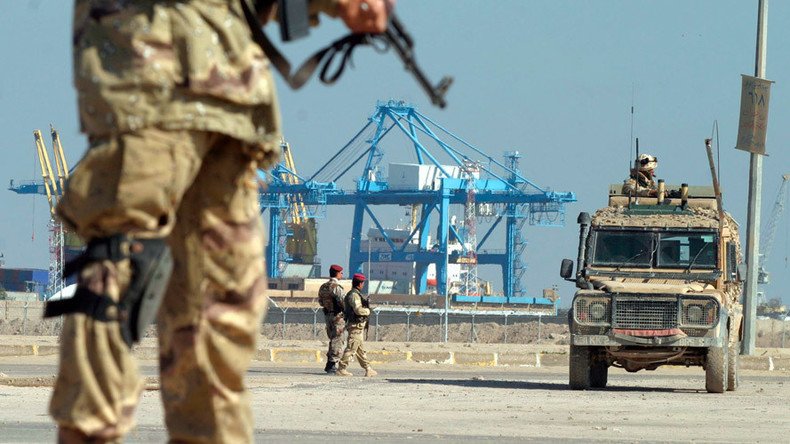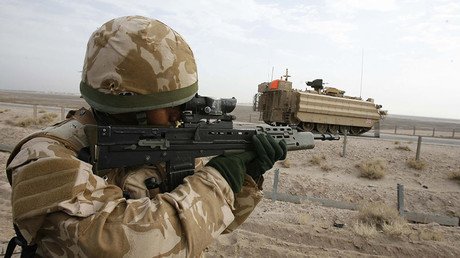‘Bullying’ UK troops caused drowning death of Iraqi teen - judge

Bullying UK troops’ conduct was the “plain and certain” cause of the 2003 drowning death of a 15-year-old Iraqi boy, an official inquiry has found.
The Iraq Fatality Investigations (IFI) inquiry into the death was led by former senior judge George Newman and reported Thursday.
The investigations’ results were the polar opposite of a manslaughter court case into the death carried out in 2006 which saw all soldiers involved exonerated.
Newman found that the circumstances of the death amounted to “a clumsy, ill-directed and bullying piece of conduct, engaged in without consideration of the risk of harm to which it could give rise,” and that the troops’ “manifest failure” to intervene as their captive floundered was the “plain and certain” cause of Ali’s demise.
The new findings appear to hint at question-dodging by some of the soldiers involved, including about claims that the four men, including Ali, who were taken from an alleged scene of looting, had been whisked away for their own protection.
The inquiry also concluded that after his arrest, and before he was bundled into a Warrior armored fighting vehicle to be taken to the eventual scene of his death, Ali had been “aggressively manhandled and assaulted.”
The four suspected looters were taken away from an area close to Basra General Hospital by soldiers from the Irish Guards.
Ali and another Iraqi were then thrown into the Shatt al-Basra canal. It is reported that this established practice was known among the soldiers as “soaking” or “wetting.”
Ali could not swim and subsequently drowned, with Newman finding that “his death ensued because he was forced by the soldiers to enter the canal, where, in the presence of the soldiers, he was seen to be in difficulty, and to go under the water.
“Notwithstanding the unlawful treatment involved in getting him into the water, his death could have been avoided because he could and should have been rescued after it became clear that he was floundering.”
The investigation turned up evidence that soldiers had somewhat bent the truth in their efforts to defend themselves.
One guardsman, known only as S018, “was a less than straightforward witness. He attempted to lay the ground for the journey [in the Warrior] being a form of mercy mission to avoid four looters ‘being bricked to death’.”
“He gave an unconvincing account of how the looters came to enter the water: his suggestion was that they probably felt in fear of their lives and thought entering the water was their best option.”
When pressed, SO18 said he “remembered Mr. Ali, not bobbing up and down, but looking panicked, and possibly going under the water.” He was then ordered to “mount up” and the soldiers left the scene.
“I was just doing an order, like I’m taught and trained to do,” he said of the command to return to the vehicle and leave Ali in the water.
The MoD issued an apology Friday, saying in a statement that “This was a grave incident for which we are extremely sorry. We are committed to investigating allegations of wrongdoing by UK forces and will use Sir George's findings to learn lessons to help ensure nothing like this happens again.”
During the inquiry an anonymous former Irish Guards officer shed considerable light on the established abusive practices used by British troops to punish and humiliate those they suspected of looting.
The former officer said the “wetting” practice was widely known and was used by British troops to contain an outbreak of civil disorder and looting in the wake of the 2003 war.
“We used a variety of methods to deal with looters, such as sitting them in the sun with a bottle of water, taking their shoes off, or throwing them into one of the waterways,” the officer told the inquiry.
“Because No 2 Coy [Company] had a body of water, throwing looters into the river was not something I would have been surprised to see them doing,” he added.
He said he recalled “driving past and seeing it. It was commonplace for them to do that.” He also said if his own company, like No 2 Company, had had access to the waterway from their own area, they would have done the same.













